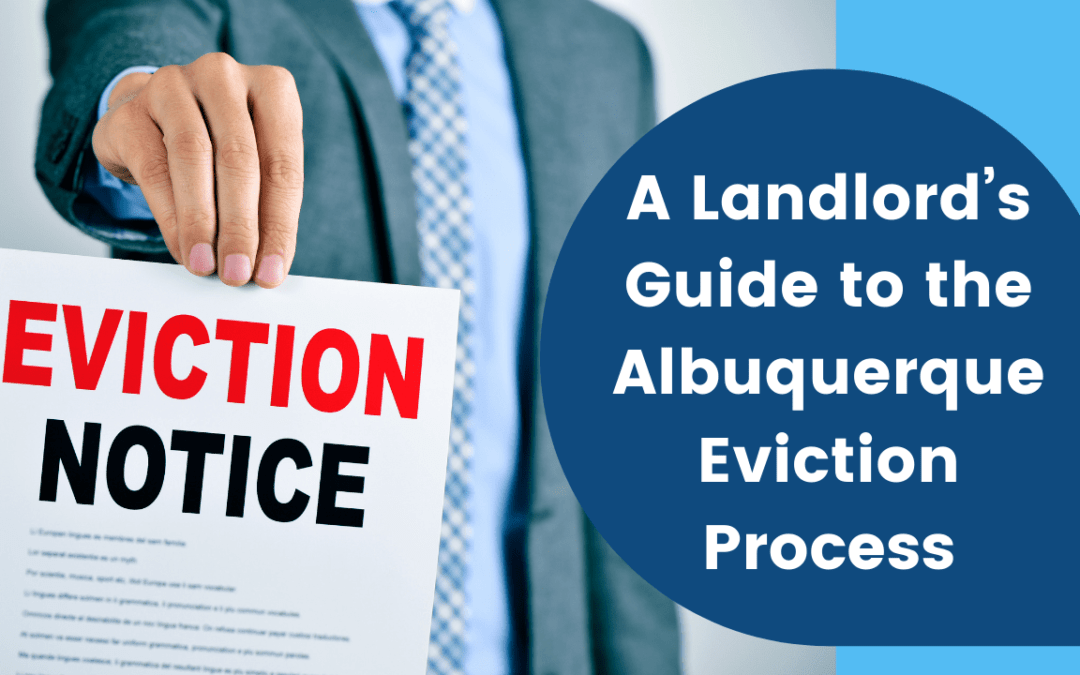Are you a landlord in Albuquerque? Here’s what you need to know about the New Mexico eviction process!
The eviction process in Albuquerque, New Mexico is not terribly complex. It requires attention to detail and compliance with every legal step, but we don’t think attorneys are necessary when you’re removing a tenant from your rental property.
With an eviction moratorium still in place, you’ll need to be strategic if you want to evict a tenant who hasn’t been able to pay rent due to the pandemic.
Outside of the COVID eviction ban, most landlords choose to evict when a tenant isn’t paying rent. Typically, it takes 30 to 60 days, depending on the level of cooperation you’re receiving from the tenant.
Here are a few things landlords need to know when thinking about filing an eviction lawsuit.
1. Serve the Tenant a Three Day Notice
The first step in the eviction process in New Mexico is to serve the tenant with a Three Day Notice. In this eviction notice, a landlord must specify the amount of money the tenant owes. If the tenant pays the overdue amount within those three days, that resident can remain in place.
2. File for Eviction with the Courts
If the three business days come and go but the tenant fails to pay rent and they also have not left the property, the landlord will have to file with the courts. You’re looking for a Petition by Owner for Restitution, which is also referred to as a Complaint in Unlawful Detainer. You’ll have to file this written notice with the court clerk and include a copy of your lease agreement. Pay the filing fee, and then collect a service packet, which will let you know when the trail is scheduled. You can expect to have that hearing about a week or two after the petition has been filed.
The same packet must be served on the tenant as well. Usually, it is sent via process server or sheriff.
3. Attend the Court Hearing
In court, the landlord will have the opportunity to present their case to the judge. Usually, tenants will not show up to this eviction hearing. If the tenant does, they’ll be permitted to make their own case and argue any reasons they may have for not paying the rent thus committing a lease violation.
4. Obtain the Writ of Possession
 Assuming a landlord has the necessary documentation to prove that their tenant is unlawfully on their property and not making rental payments thus violating the terms of the lease or rental agreement, the court will issue a judgment for restitution and order the tenant to vacate within three days to a week. Usually, the tenant will move out. If not, a Writ of Restitution can be obtained and given to the sheriff to take to the property and remove the tenant.
Assuming a landlord has the necessary documentation to prove that their tenant is unlawfully on their property and not making rental payments thus violating the terms of the lease or rental agreement, the court will issue a judgment for restitution and order the tenant to vacate within three days to a week. Usually, the tenant will move out. If not, a Writ of Restitution can be obtained and given to the sheriff to take to the property and remove the tenant.
Sometimes, you’ll finally get a nonpaying tenant out of your property but the damages left behind and the unpaid rent exceeds the amount of your security deposit. That will require a separate hearing.
We know that eviction is not fun, and the best way to avoid evicting a tenant is to screen rigorously and enforce a strict rent collection policy. That’s just part of what we do as professional Albuquerque property managers. If you’d like to hear more about how we can help with evictions, please contact us at Blue Door Realty.

